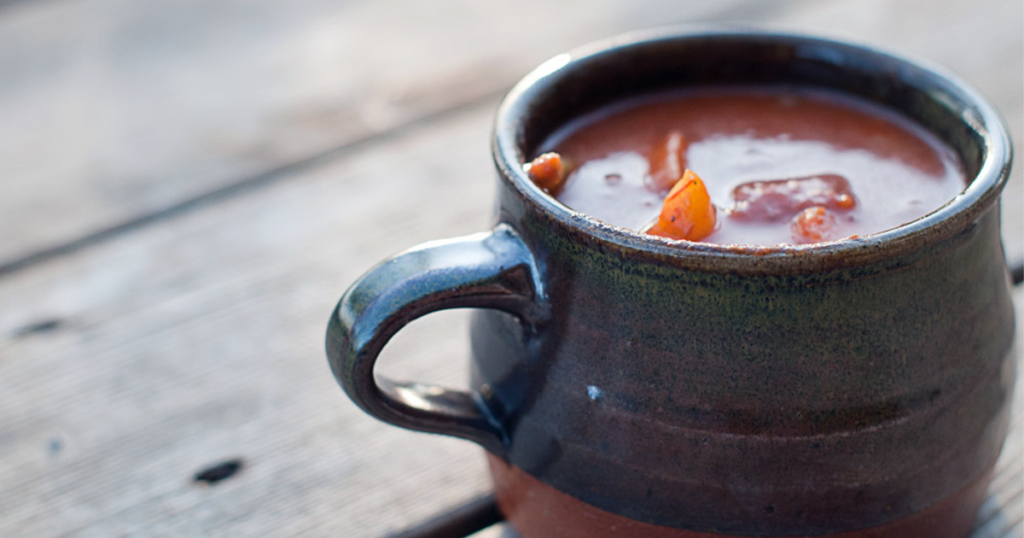
My new neighbor on the right doesn’t live there, in the house he grew up in, but he comes early every morning to open up the place, and though he’s often somewhere else all day, I know by the fastened shutters and the wooden garden clogs, called madreñas, neatly aligned at the threshold, that the day is over and he’s gone home again.
Late one evening on the last day of April, he appeared at my door, his arms full of garden produce. He’d just picked some greens from his garden, he explained. Here, he said, holding out a bunch of celery and another of verdura, the variety of kale typical in Asturias and Galicia, this was for me. I took the produce gladly. Thank you, thank you! His son, whom I’d met a few days earlier and who is the same age as my son, early 20s, was with him. We three chatted a moment, exchanged pleasantries, and then I asked if they had plans for the next day, May 1, a Sunday and this year both Labor Day and Mother’s Day in Spain.
I learned that my neighbor’s wife would spend the day with her mother in the village where the old woman lives alone. My neighbor’s son had wanted to take his mother out for a meal, but that Sunday evening all the restaurants would be full. So much commotion, my neighbor said, too much, explaining the choice to eat a quiet meal at home when his wife returned from the village. It was for that meal, a chickpea and vegetable stew from the Canary Islands, that he’d picked the vegetables. Fourteen ingredients in total, he told me, and we counted as he named them. The stew required slow cooking in addition to what I considered elaborate steps, such as soaking fennel overnight to extract the flavor. He said he’d give me la prueba, a sample.
In Spain I have tasted many new dishes and loved most of them. But nothing was as all-round good as my mother’s red beans and rice, a standby from her childhood in New Orleans and my favorite dish as a child. Though it’s been years since I’ve had it, red beans and rice is always there, like the old homestead nothing can replace.
But something can temporarily eclipse an old favorite. One summer about a dozen years ago, some visiting French friends cooked one night for the 10 people at the house. Grilled eggplant, sautéed onions, and fresh tomatoes, all baked together with béchamel. A trace of nutmeg was the seasoning, as I recall. We ate outdoors at the table in the open barn. Plates were filled and passed around, someone poured the wine for the adults and filled water glasses for the kids, the bread basket went around, and then we commenced to eat. I cannot remember the taste, but I do remember almost coming to my feet with the astonishment of a flavor so wonderful. “Oh!” The high note of disbelief must have sounded like a chime in that single word. I had seconds of course, then thirds, and what I’d wolfed down at first I ate ever more slowly. I wanted the experience to last forever.
My English friend and I tried to reproduce the dish a few nights after the French friends had left. It turned out well, but it did not approach the sublimity of the first time. Could it ever? Yes, some things improve over time, but not that. It would be forever my all-time most exquisite taste experience. The friends, the night, the French, Spanish, and English languages like parts in a musical piece, the table beautifully laden, the children and grownups gathered round, all very informal and exactly perfect. Maybe all that was the seasoning. Ah, heaven!
Hence my astonishment when my new neighbor brought me la prueba and the stew was the equal of the eggplant dish. Utterly delectable. I was all alone in my new house, nostalgic for what was gone but interested in the new path I was on. Yet it is no contradiction to say that my experience was the same as that earlier one, and that again I was having the most tremendously tasty dish I’d ever eaten. I did not lie when I told my neighbor I’d never eaten anything so good. I try to recall the flavor of red beans and rice or the eggplant dish or even the chickpea stew, and I can’t. But I can remember being astonished.
My neighbor is a man under the influence of the past. He keeps up the old home, wears the old shoes, lights the old cook stove, pets the old dog chained across the lane under the hórreo, the old raised granary, and laments that when he and his siblings are gone, their children will sell the property where his grandparents lived, then his parents, and where he was raised. Nothing will be left. But I like to think that his son’s memory of chickpea stew with vegetables fresh from the garden and simmered all day long will last for years. I imagine the stew is a standard in the family. And though the taste might disappear from his memory, the father will always be present there, a man who would spend all day in the kitchen on the festival of the worker to prepare a meal properly.

